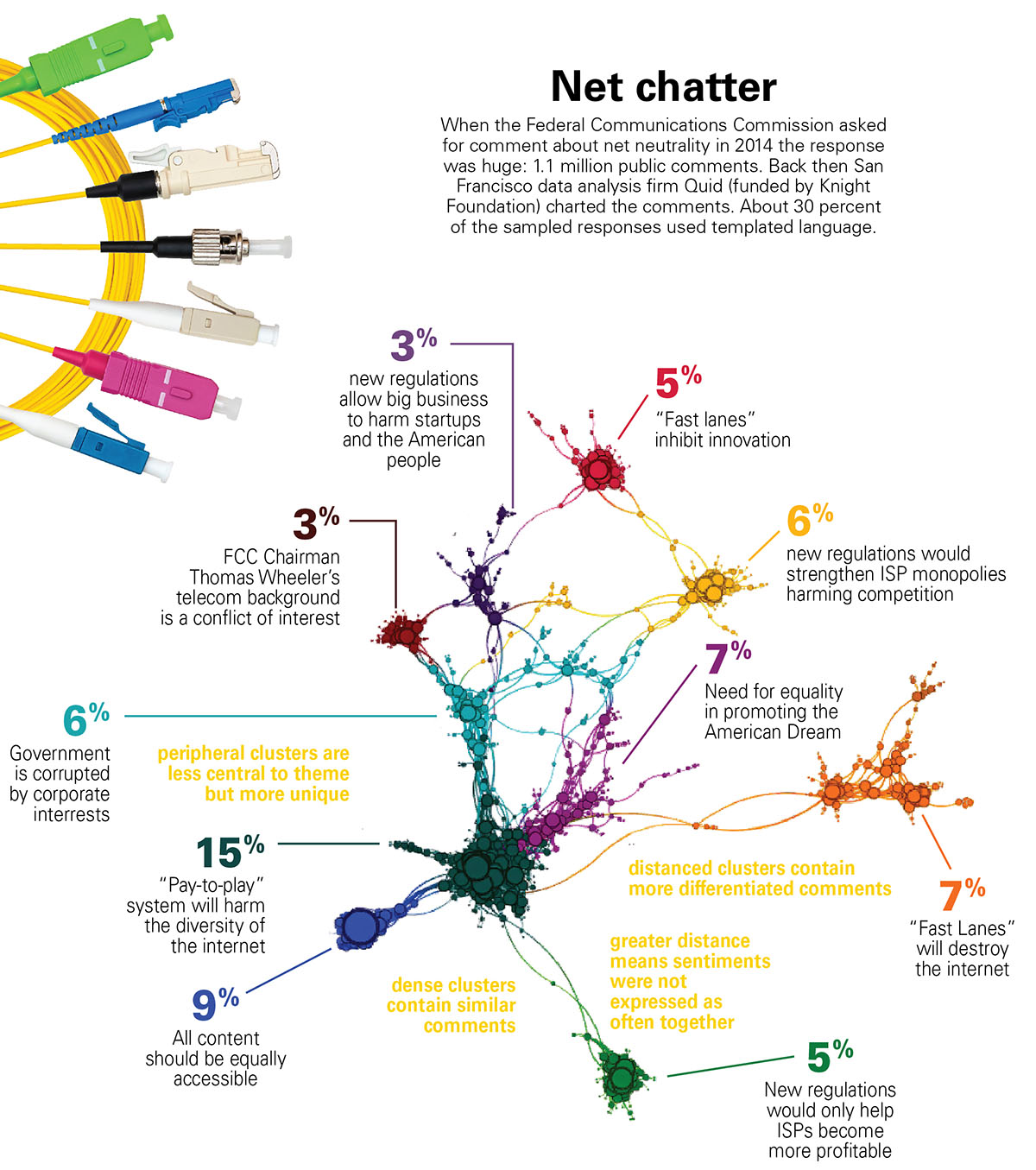
Federal net neutrality legislation has split politicians largely along partisan political lines—with President Obama imposing net neutrality restrictions, President Trump repealing them and President Biden struggling to reintroduce them—leading some states to implement their own rules.
Key facts
Net neutrality is a policy that suggests everyone should have the same access to the internet and its information.
Net neutrality legislation generally prevents internet service providers from charging more for faster service and from blocking or slowing down content.
Federal net neutrality laws require the internet to be classified as a public telecommunication utility, not a network of private services.
Federal telecommunication utilities are regulated by the Federal Communication Commission, but some net neutrality principles are already enforced for internet service providers by the Federal Trade Commission.
President Biden nominated pro-net neutrality candidate Gigi Sohn to sit on the Federal Communications Commission in February—her third nomination since 2021—but Sohn withdrew from consideration in March citing “unrelenting, dishonest and cruel attacks on my character and my career…”
California, Colorado, Maine, New Jersey, Oregon, Vermont and Washington have passed state net neutrality legislation.
History of net neutrality privacy laws
The Federal Communication Commission first enshrined the principles of net neutrality in 2005 but was denied the legal authority to enforce them until the Open Internet Order passed in 2015 under then-President Obama.
The order gave the FCC authority over internet service providers by reclassifying them as telecommunications services and implemented rules preventing providers from blocking or slowing down legal internet content or charging more for better service.
The FCC repealed the 2015 net neutrality rules in December 2017 under then-President Trump, touching off a series of legal battles concerning the right of states to impose their own net-neutrality rules.
California’s 2018 net-neutrality bill was challenged three times in court by internet service providers and the Department of Justice before the companies stopped their legal fight in May 2022.
President Biden is working to bring federal net neutrality regulation back—he signed an executive order in July 2021 asking the FCC to bring back some Obama-era protections and nominated Gigi Sohn to join the deadlocked FCC three months later—but has been largely unsuccessful.
Net neutrality cons
Opponents of net neutrality generally argue preventing internet service providers from charging different prices for different services removes all incentive for providers to innovate or invest in expanding their bandwidth.
Writer and internet analyst Larry Downes further asserts internet service providers generally uphold net neutrality without specific regulations because of market pressure and the oversight of the Federal Trade Commission.
Others predict net neutrality rules could ultimately raise costs for consumers, because if providers can’t charge different amounts for different services, they will start charging consumers based on the number of people using the network, forcing everyone to pay more.
Proponents argue net neutrality ensures everyone gets the same access to the internet regardless of wealth or status and prevents internet service providers from controlling what information consumers can access.
Some legislation prevents rich companies from buying faster internet and stops providers from exempting their own content (like streaming services) from contributing to customers’ data caps, which some say helps small or cash-strapped companies compete with giants like Netflix or Google.
Net neutrality in Europe
The European Union is considering taxing Google, Netflix, Facebook and other large U.S. tech firms to maintain Europe’s telecommunication network.
Proponents of the plan argue drivers of internet traffic should pay for the upkeep and expansion of internet infrastructure.
Opponents say the plan could incentivize companies to violate net neutrality principles and use internet service providers outside the EU, which would negatively affect the security and quality of some internet services.
Source Emily Washburn, Forbes











